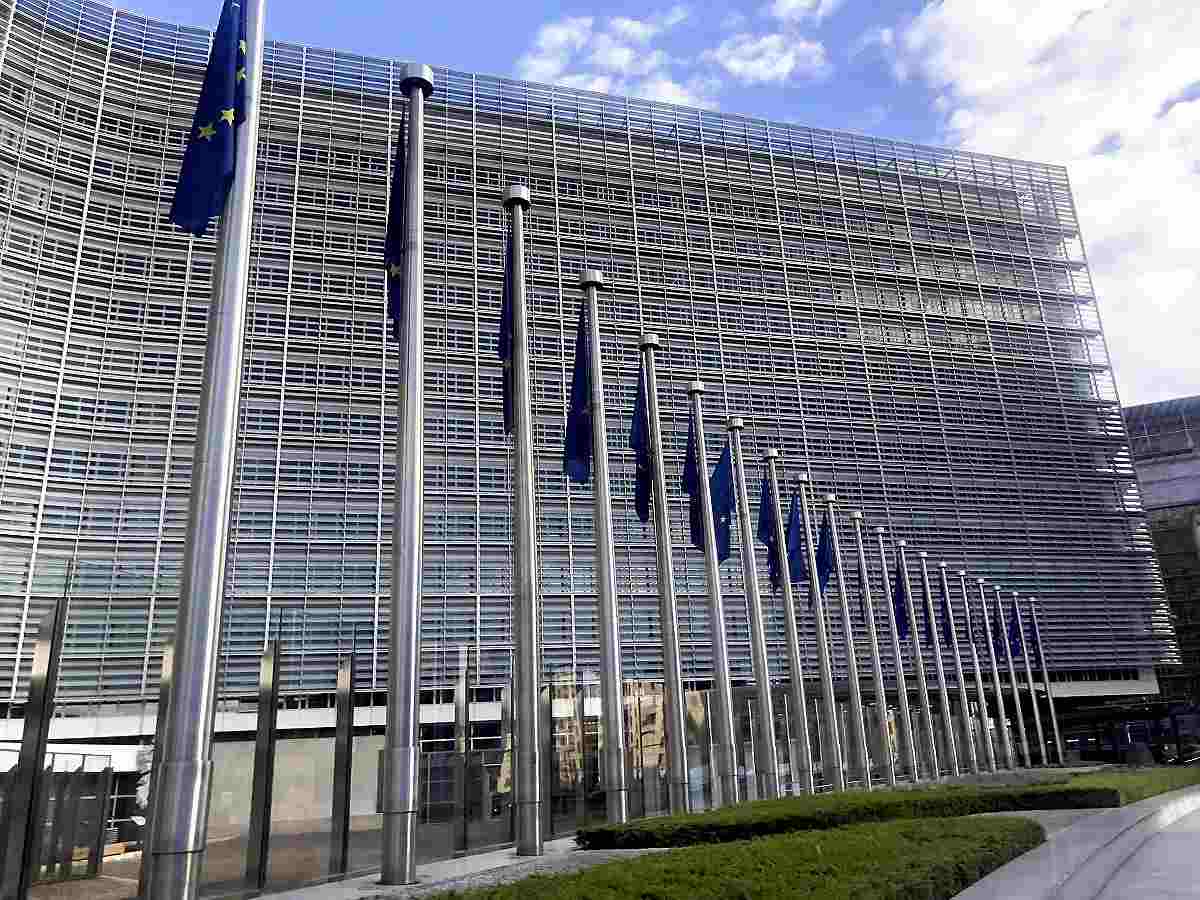
European Union headquarters in Brussels
7:00 JST, February 25, 2024
BRUSSELS — Japanese sake makers are facing a potential ban on imports into the European Union from 2030, when proposed EU regulations requiring the reuse and recycling of bottles and cans is planned to take effect.
The problem stems from the logistical issues of collecting and washing uniquely sized sake bottles locally for the purpose of recycling.
The proposed regulations are expected to be enacted as early as March, and the export-focused Japanese government is mounting a diplomatic offensive to get sake exempted.
The “Proposal for a Regulation on Packaging and Packaging Waste” is a legislative measure that will require business operators to either reuse or use recycled materials for bottles, cans or other containers that hold beverages and food products starting from 2030.
Whiskey, other distilled spirits and wine will be exempt because the mandate was deemed to would deliver too much of an economic blow to local producers. Imported Japanese sake, however, will be subject to the rules.
Japanese officials contend that application of the regulations is unrealistic in the case of sake, due to the prohibitive costs of collecting and reusing the standard 720-milliliter and 1.8-liter bottles from Japanese restaurants and other establishments in Europe.
If enacted as currently written, the regulation effectively bans imports of sake.
A draft of the regulations was prepared by the European Commission, the executive arm of the European Union, with amendments adopted last year by the European Parliament and the Council of the European Union, which is comprised of government ministers.
The three parties are currently working together to finalize the regulations.
The Japanese government has secured the cooperation of the European Commission in its attempt to gain an exemption for sake, but is facing resistance from an environment-focused faction of the European Parliament.
The position of the Council of the European Union remains unclear. One EU official said that the issue of how sake is dealt with will not be known “until the last minute” before the regulations are enacted.
Sake is becoming increasingly popular worldwide, with exports to the EU rising from about ¥1.3 billion in 2018 to about ¥2 billion in 2022.
Top Articles in Business
-

Narita Airport, Startup in Japan Demonstrate Machine to Compress Clothes for Tourists to Prevent People from Abandoning Suitcases
-

Prudential Life Insurance Plans to Fully Compensate for Damages Caused by Fraudulent Actions Without Waiting for Third-Party Committee Review
-

Asics Opens Factory for Onitsuka Tiger Brand in Western Japan
-

JR Tokai, Shizuoka Pref. Agree on Water Resources for Maglev Train Construction
-

KDDI Opens AI Data Center at Former Sharp Plant in Osaka Prefecture; Facility Will Provide Google’s Gemini AI Model for Domestic Users
JN ACCESS RANKING
-

Japan Institute to Use Domestic Commercial Optical Lattice Clock to Set Japan Standard Time
-

Israeli Ambassador to Japan Speaks about Japan’s Role in the Reconstruction of Gaza
-

Man Infected with Measles May Have Come in Contact with Many People in Tokyo, Went to Store, Restaurant Around When Symptoms Emerged
-

China Eyes Rare Earth Foothold in Malaysia to Maintain Dominance, Counter Japan, U.S.
-

Australian Woman Dies After Mishap on Ski Lift in Nagano Prefecture


























